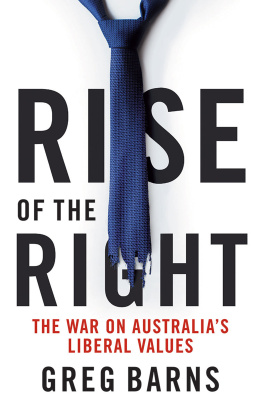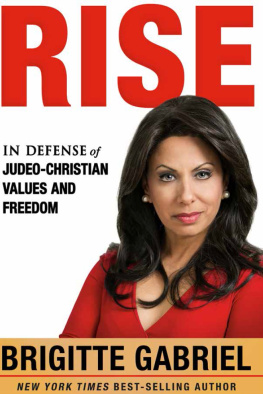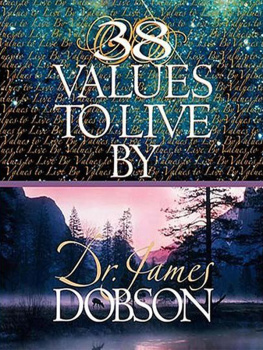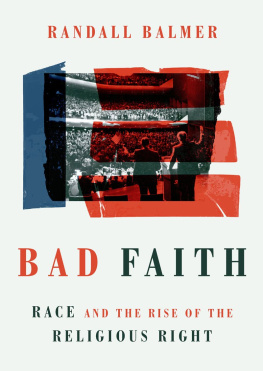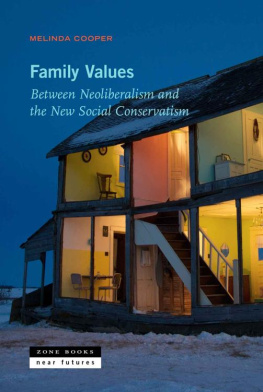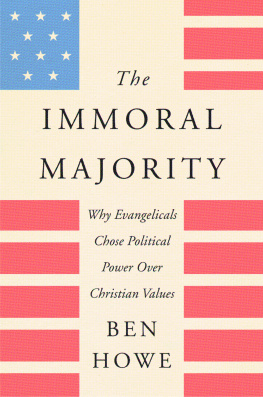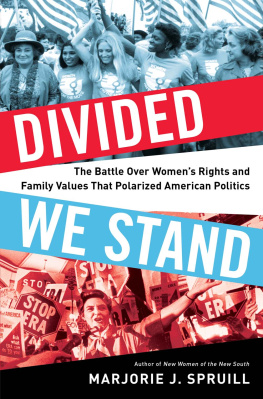Family Values
and the Rise of the Christian Right
Politics and Culture in Modern America
Series Editors:
Margot Canaday, Glenda Gilmore, Michael Kazin,
Stephen Pitti, Thomas J. Sugrue
Volumes in the series narrate and analyze political and social change in the broadest dimensions from 1865 to the present, including ideas about the ways people have sought and wielded power in the public sphere and the language and institutions of politics at all levelslocal, national, and transnational. The series is motivated by a desire to reverse the fragmentation of modern U.S. history and to encourage synthetic perspectives on social movements and the state, on gender, race, and labor, and on intellectual history and popular culture.
Family Values
and the Rise of the Christian Right
Seth Dowland

UNIVERSITY OF PENNSYLVANIA PRESS
PHILADELPHIA
Copyright 2015 University of Pennsylvania Press
All rights reserved. Except for brief quotations used for purposes of review or scholarly citation, none of this book may be reproduced in any form by any means without written permission from the publisher.
Published by
University of Pennsylvania Press
Philadelphia, Pennsylvania 19104-4112
www.upenn.edu/pennpress
Printed in the United States of America on acid-free paper
1 3 5 7 9 10 8 6 4 2
Library of Congress Cataloging-in-Publication Data
Dowland, Seth, 1979 author.
Family values and the rise of the Christian right / Seth Dowland.
pages cm. (Politics and culture in modern America)
Includes bibliographical references and index.
ISBN 978-0-8122-4760-2
1. Christian conservatismUnited StatesHistory20th century. 2. Christian conservatismUnited StatesPolitical aspectsHistory20th century. 3. United StatesPolitics and government20th century. 4. Sex roleReligious aspectsChristianity. I. Title. II. Series: Politics and culture in modern America.
BR526.D69 2015
261.7097309045dc23
2015007476
For Ami
CONTENTS
Introduction
On October 4, 1997, hundreds of thousands of peoplemostly mencrowded the National Mall in Washington, D.C., to sing, pray, and make promises to change their lives. Beginning around noon, a series of evangelical Christian speakers took the podium on the steps in front of the Capitol. The speakers at the rally, sponsored by the evangelical mens organization Promise Keepers, encouraged men to confess their failures. These calls for repentance emerged from the groups insistence that men have been irresponsible. Men have not stood strong for their convictions. Men have not been men of their word. According to Promise Keepers founder Bill McCartney, The reason we see a downward spiral in morality in this nation is because the men of God have not stood together. Promise Keepers vowed that they would assume their biblical responsibilities to lead their families, honor their wives, and restore morality to the nation.
Critics cried foul. The Promise Keepers speak about taking back America for Christ, but they also mean to take back the rights of women, said Patricia Ireland, president of the National Organization for Women, Their call for submission of women is one that doesnt have a place in either the pulpit or the public sphere in the 1990s.recalled smaller rallies during the 1970s and 1980s in which evangelical Christian ministers urged their listeners to vote Republican.
Yet Promise Keepers insisted they had no political agenda, unspoken or otherwise. Promise Keepers wants to make one thing perfectly clear, declared the organization magazine New Man. The massive October gathering in Washington is not for politics or protest. Its a God thing. The Promise Keepers disavowal of politics was telling. It reflected evangelicals growing discomfort with the partisan tone of evangelical political action groups like the Moral Majority and Christian Coalition. If this turns into the Christian Coalition, vowed one evangelical radio host, Im out of here. While Promise Keepers decision to hold its largest rally on the National Mall created an unavoidable political veneer, leaders and members of the group did not embrace the partisan invective of earlier conservative evangelicals.
By 1997, they did not have to. At that point, family values rhetoric had pervaded white evangelical Christianity, drawing on theological resources to animate a vision for social renewal. This vision included opposition to abortion, gay rights, and major feminist objectives. It supported private Christian schools, home schooling, and a strong military. Conservative evangelicals believed these positions would sponsor the creation of strong families, which were essential to national greatness. The positions encompassed in family values coincided frequently with the agenda of the Republican Party, which increasingly saw white conservative evangelicals as a crucial bloc of support. The GOP accommodated the language of family values in its platforms and campaigns. To be sure, not all family values initiatives were explicitly partisan. Evangelicals campaigned for family values by creating private Christian academies, by establishing home schools, and by rallying men to return to the faith. But these initiatives existed alongside other movementsopposing abortion, feminism, and gay rightsthat won endorsement from the Republican Party. The vision of family values created a bond between evangelicalism and political conservatism. The phrase was capacious enough to accommodate a variety of initiatives but specific enough to mark boundaries between conservative evangelicalism and broader society. The Promise Keepers disavowal of political motives belied the deep connections between evangelicals and political conservatives. While not every evangelical (or even every Promise Keeper) voted Republican, focusing on family values had become a hallmark of both evangelicalism and political conservatism.
These connections developed over time and depended on a sense that secular forces threatened the family. Evangelical leaders envisioned the family as the central unit of American society, and they framed their political activities throughout the 1970s, 1980s, and 1990s as a defense of the traditional family. In 1963, evangelist Billy Graham noted, there are many stresses on family life and family life is the basic unit of society. By the end of the twentieth century, conservative evangelicals conceived of family values as central to the faith.
This book examines the history of how and why family values came to play such a prominent role in evangelical worldviewsand how these conservative Christians deployed the language of family values to transform American political culture. The social movements of the 1960s, including the sexual revolution, the civil rights movement, feminism, and gay rights, shattered conservatives perception of a national consensus. The partial success of these social movements caused conservative white Americans to feel both disempowered and disillusioned. Liberals had won notable gains from the 1930s to the 1960s, including the enlargement of the welfare state, the advance of civil rights, almost unbroken control of the White House, and a series of Supreme Court decision that struck against both segregation and Protestant Christian moral control. In the early 1970s, white conservatives surveyed the American landscape and saw economic crises, spiraling crime, urban riots, and endless warsboth hot and cold. They determined that the nation had gone off the track. In particular, conservatives sensed that liberals had undermined traditional values. This climate was ripe for a politics that celebrated a nostalgic ideal of the home.rapidly fragmenting culture, evangelicals gravitated to the family values ideal and made it the most potent force in late-twentieth century American politics.
Next page

